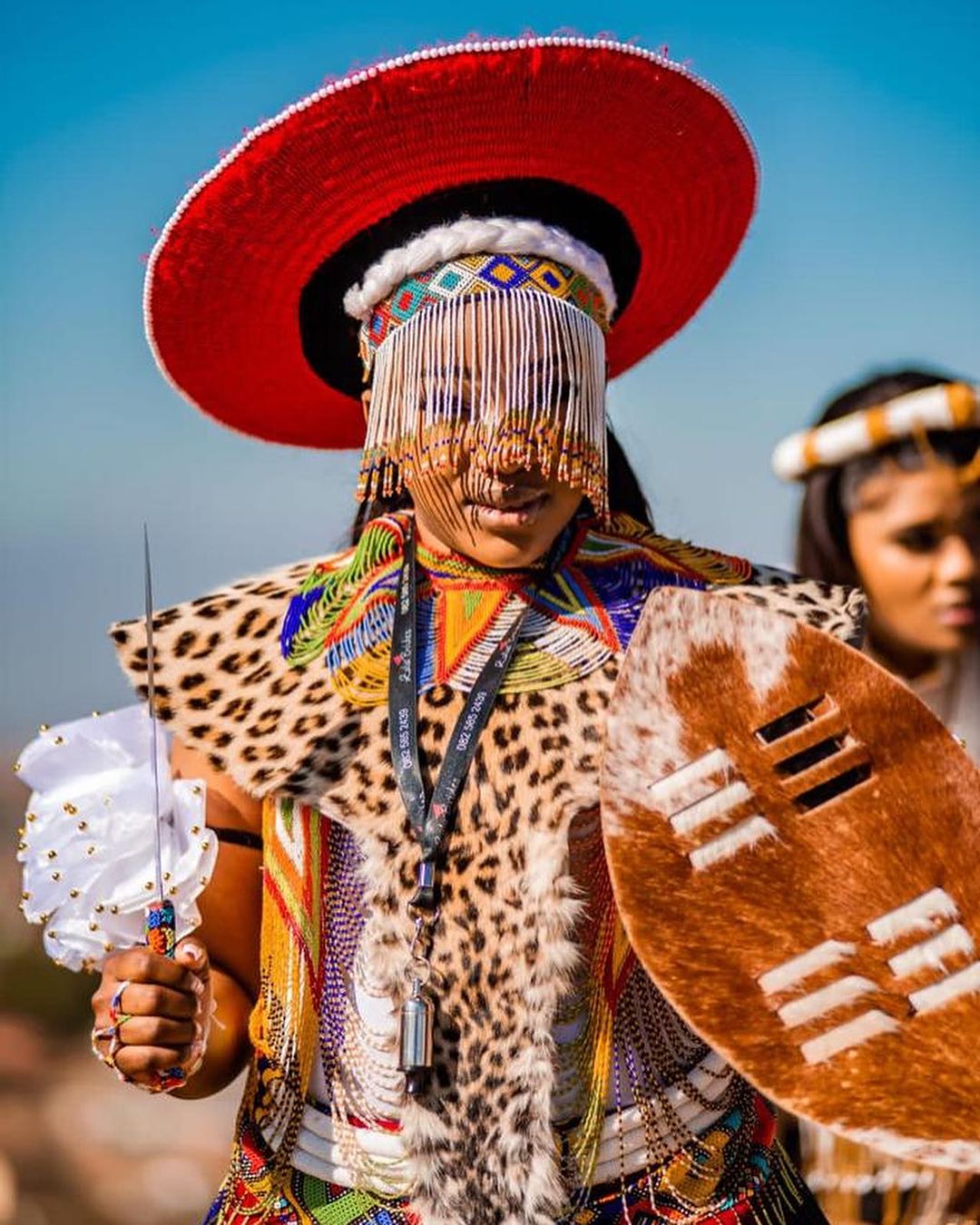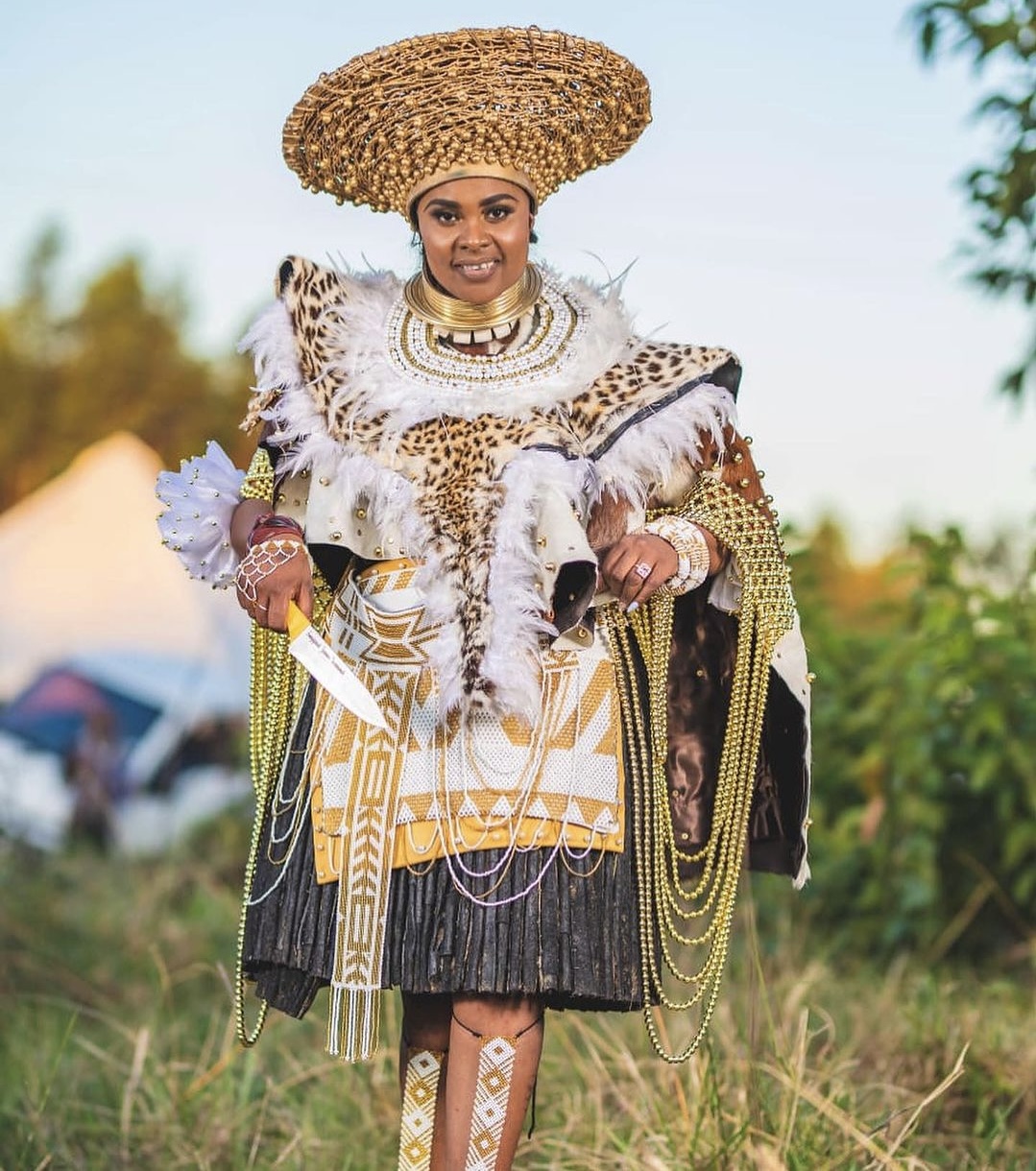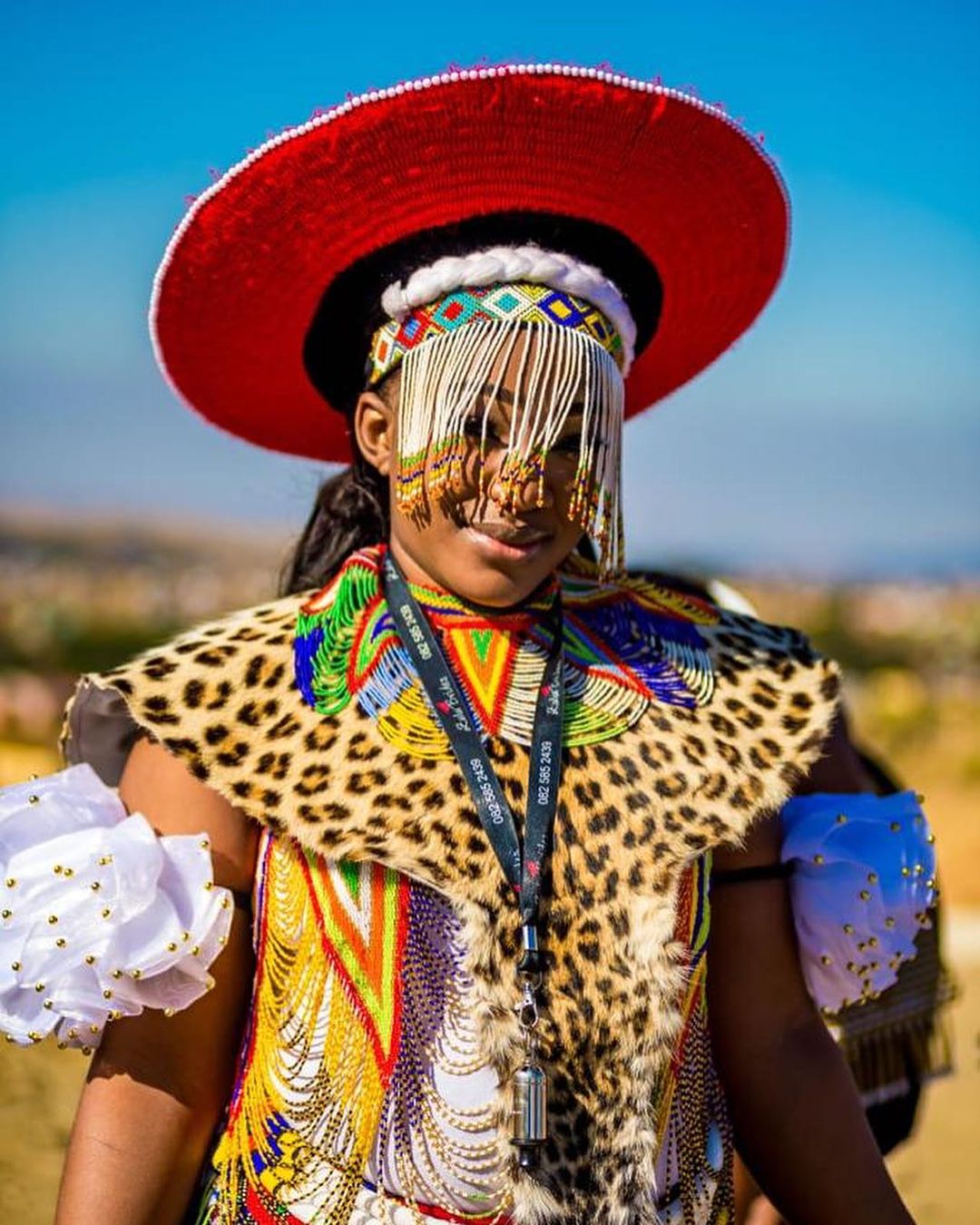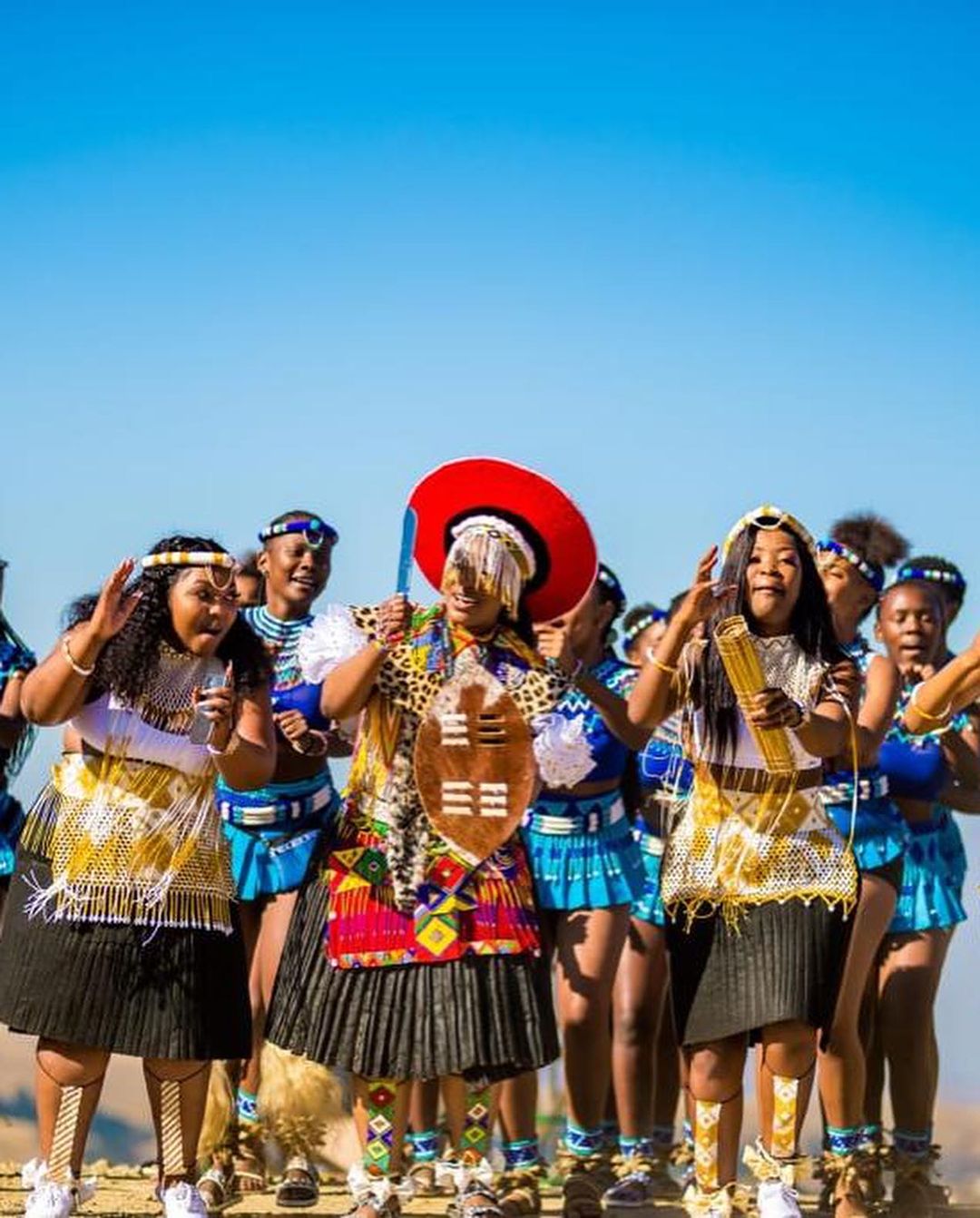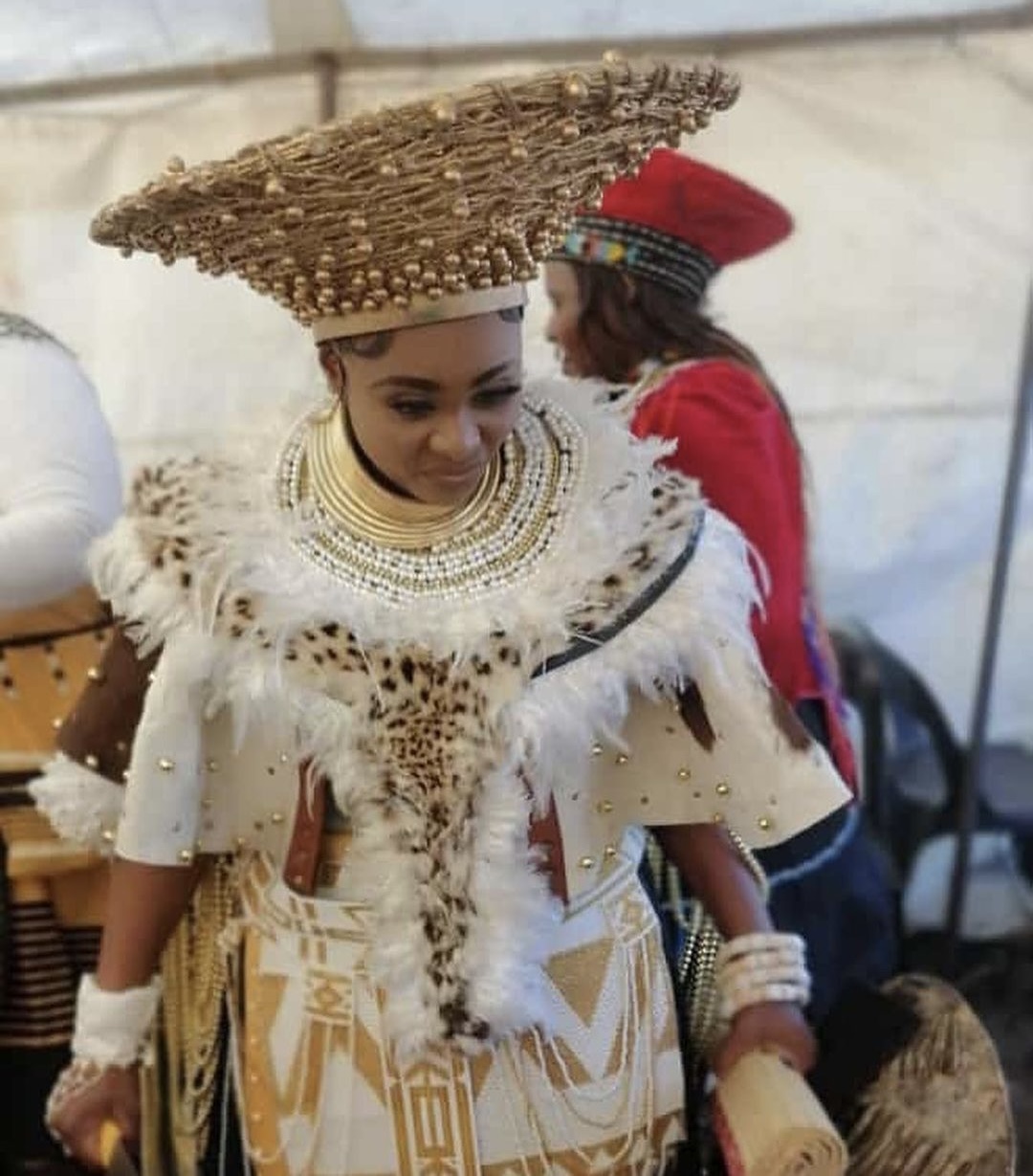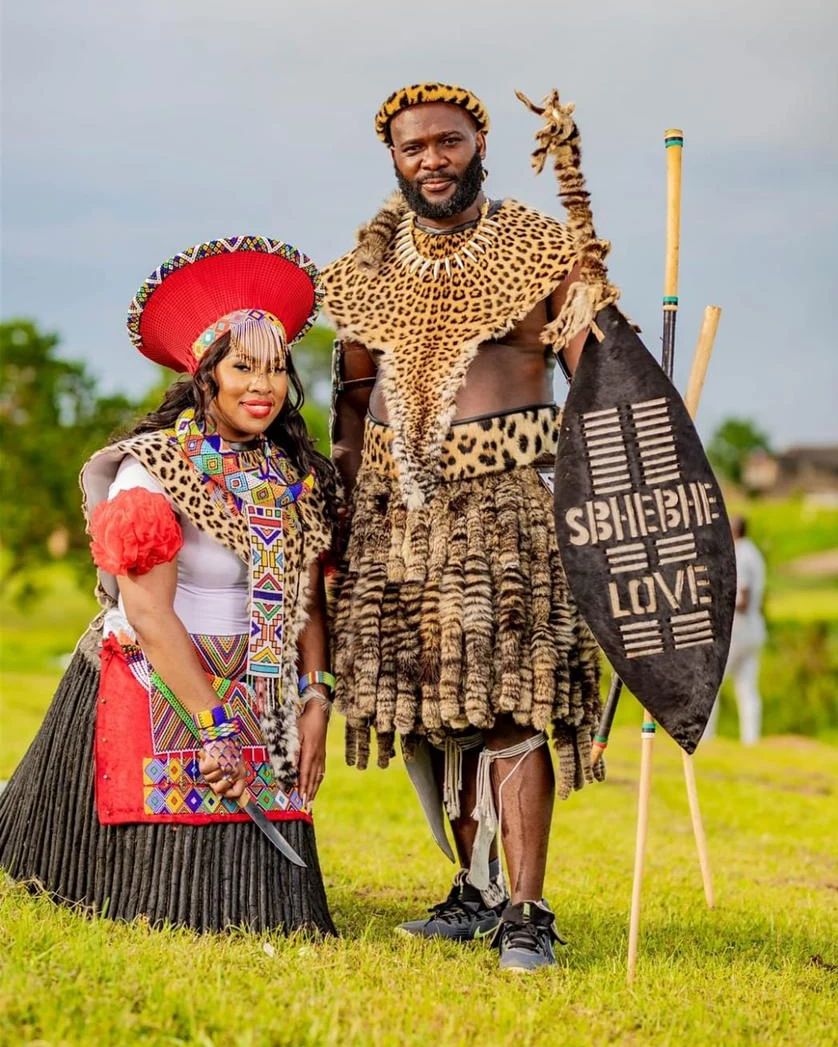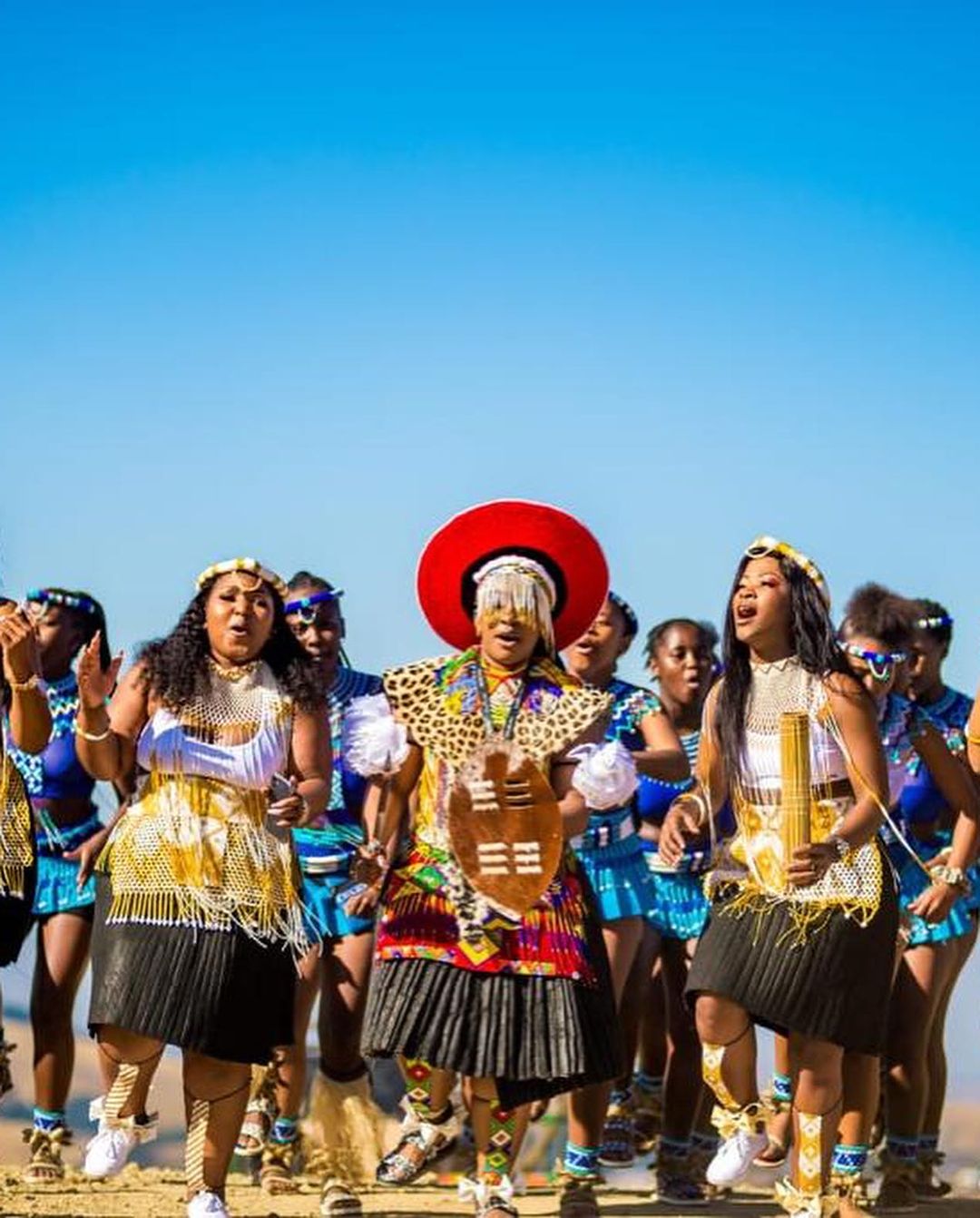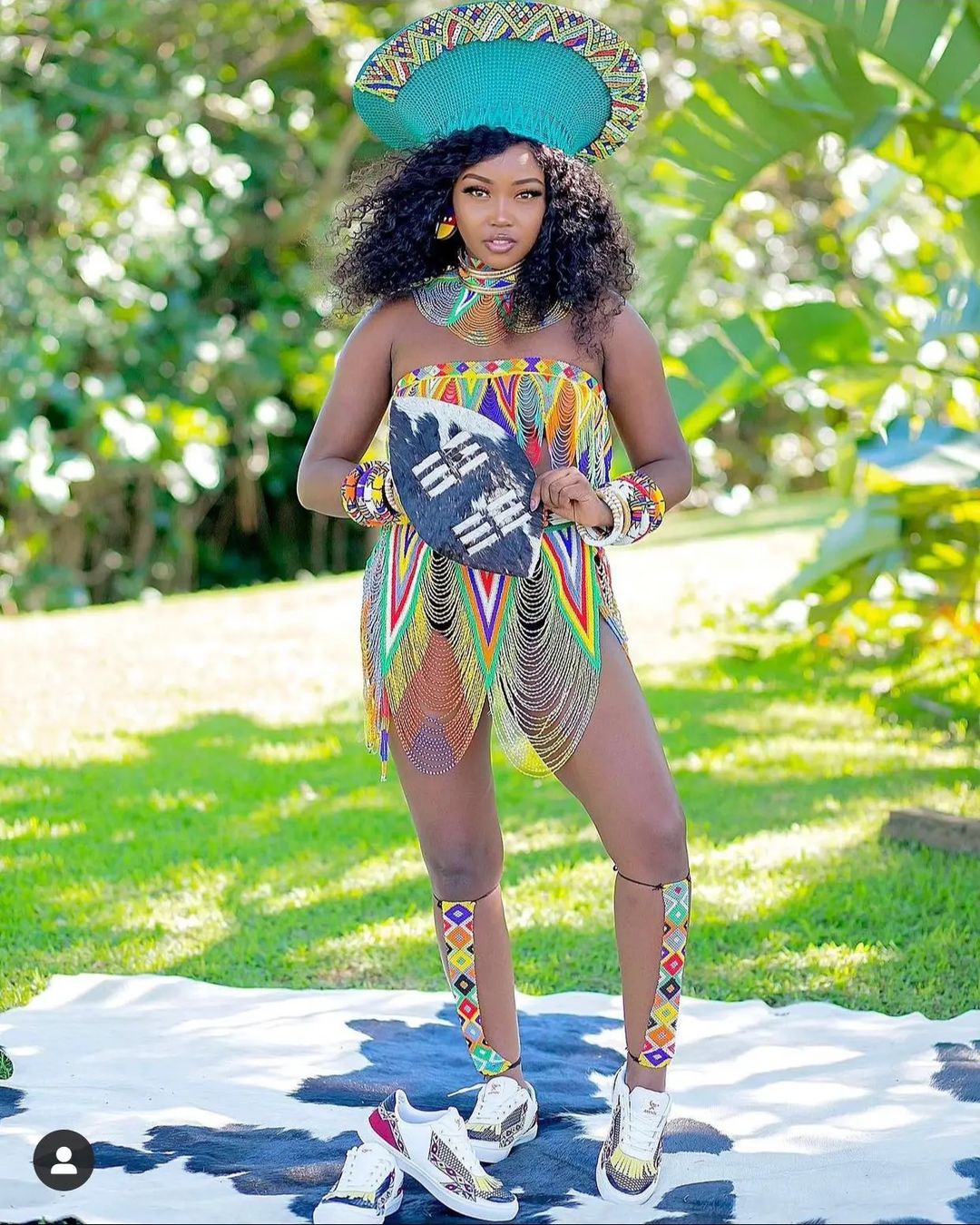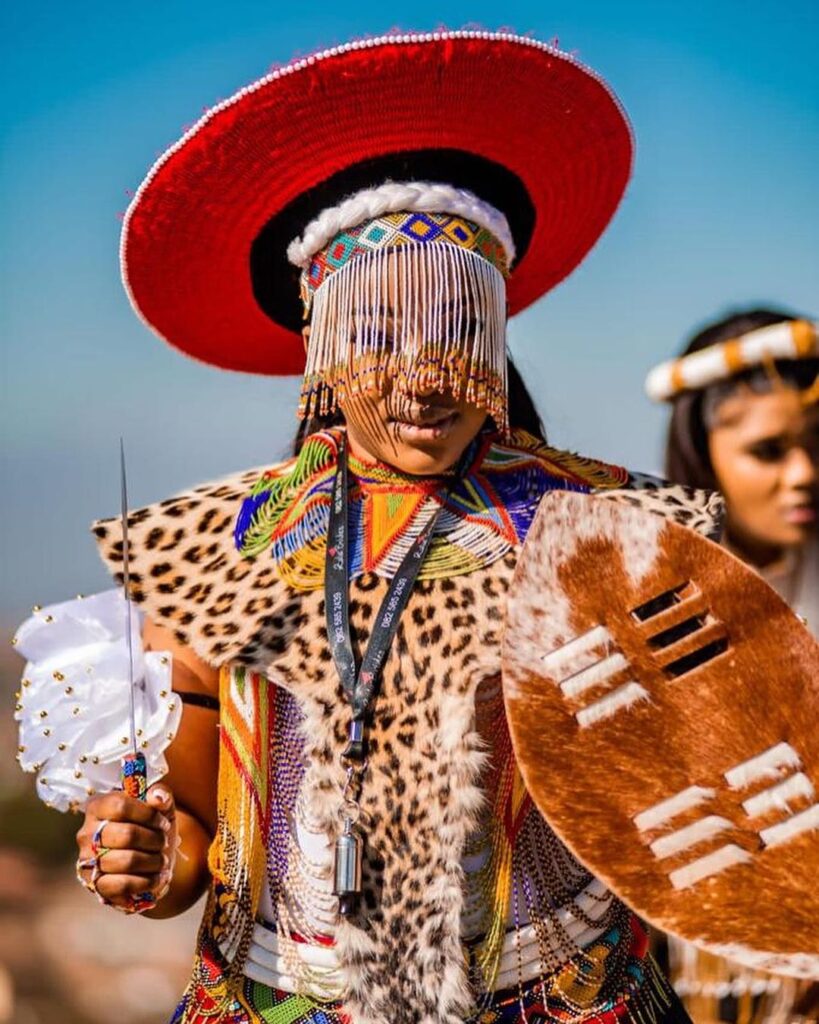
In the vibrant culture of South Africa, Zulu weddings stand out for their rich traditions and colourful attire.
Rooted deeply in their heritage, the Zulu people celebrate weddings with great pomp, and the traditional wedding dresses are a significant aspect of these festivities. This guide by Kele+ delves into the intricate world of Zulu traditional wedding attire, combining insights from popular styles with general cultural knowledge, to help you achieve the perfect look for a Zulu wedding.
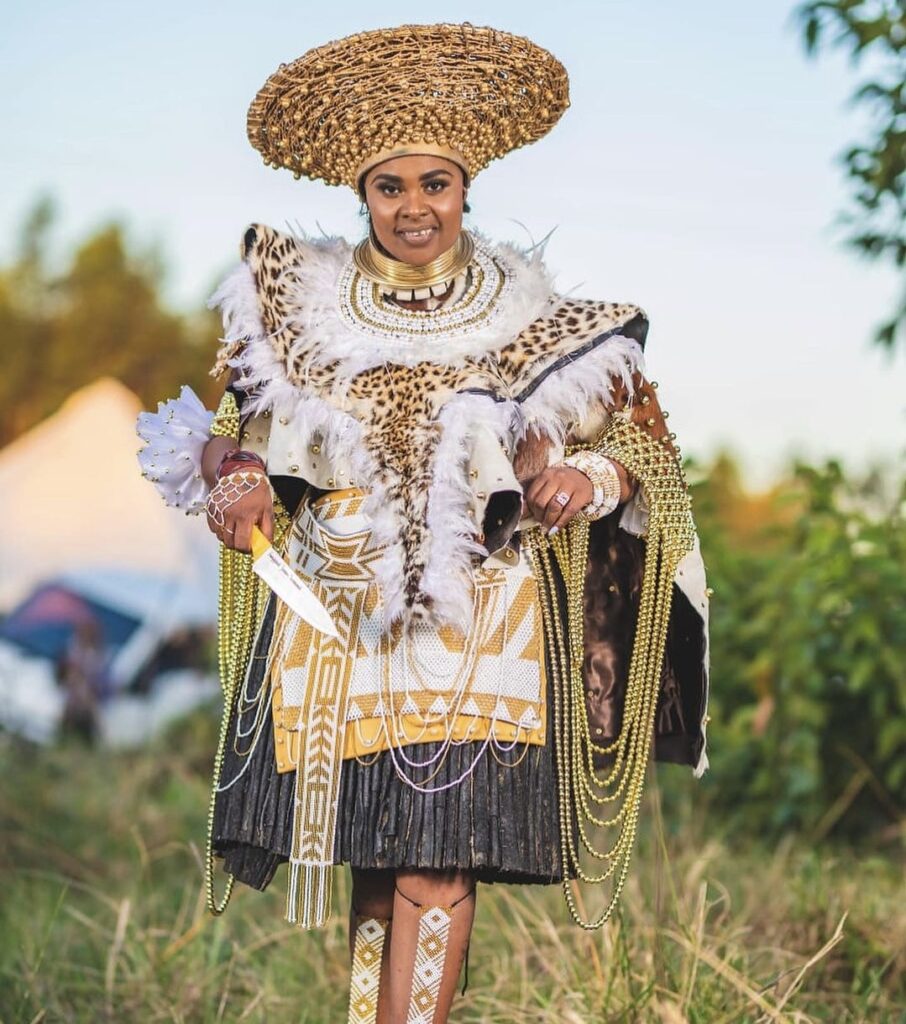
Zulu wedding attire is a splendid reflection of the tribe's deep-rooted cultural identity. It's not just about style; each element of the attire, from the isicholo to the isidwaba, is imbued with cultural significance, symbolising the transition of the bride and groom into a new phase of life.
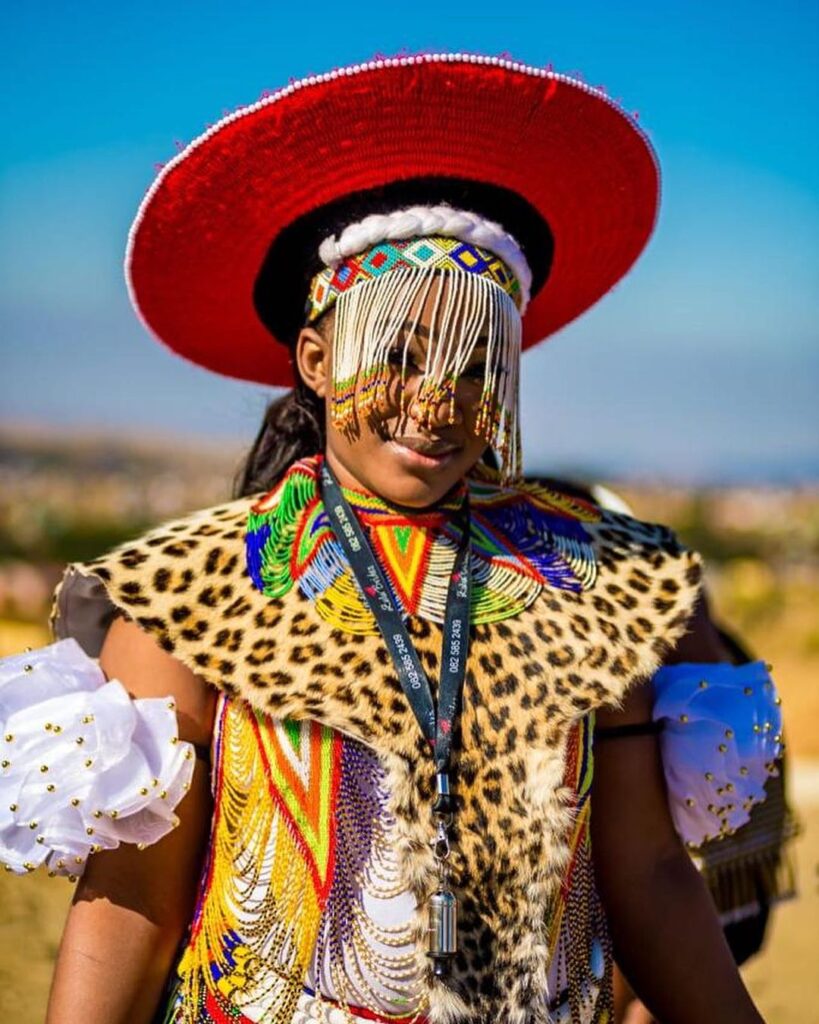
The bride's outfit is headlined by the isicholo, a tall, circular hat that symbolises her respect and maturity as she transitions into womanhood. Originally made of woven grass, modern variations might include contemporary materials while maintaining the traditional design.
Complementing the isicholo, the bride wears an isiqhwayi, a beautifully beaded apron that enhances her elegance. The umqhele, a beaded neckpiece, further adds to the ensemble's sophistication.
The traditional attire, known as isidwaba or umakoti, is a vibrant, colourful skirt paired with a matching top called inyoni. The bright colours and intricate beadwork are a testament to the joy and vibrancy of the occasion.
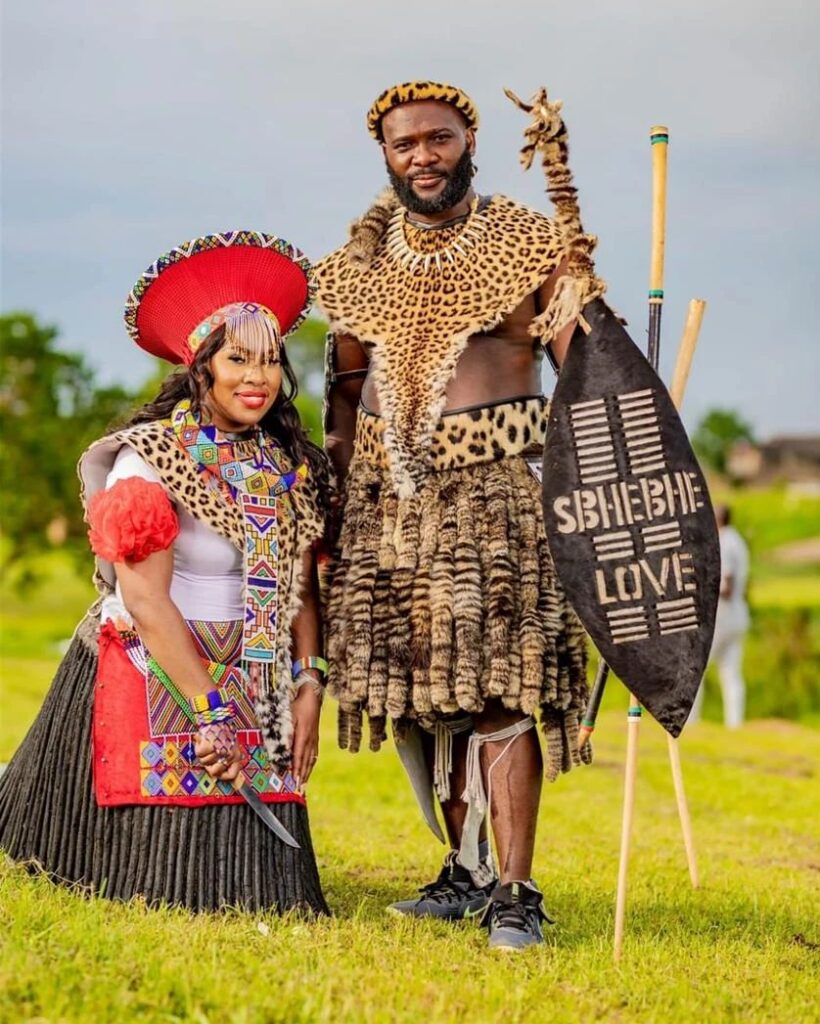
The groom typically dons a traditional blanket called ibheshu or isiphandla, symbolizing his transition into married life. Made from animal hide or warm fabric, it's a key part of his attire.
Beadwork is crucial in Zulu wedding attire, with both brides and grooms wearing beaded jewellery. These beads are not just decorative; they carry symbolic meanings and convey messages about the couple's journey.
Traditional or beaded sandals are commonly worn, keeping with the cultural theme.
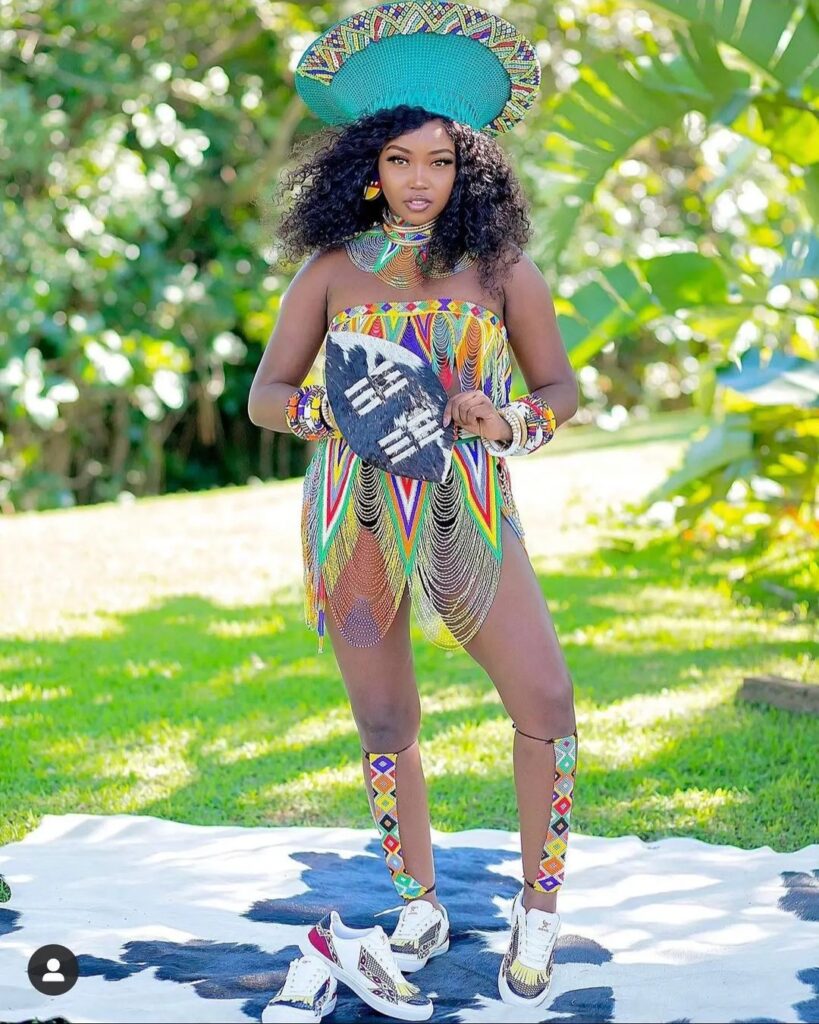
A Zulu bride often wears multiple dresses on her wedding day, each signifying a different aspect of the celebration:
Before the wedding, ceremonies like Umemulo or Umembeso require specific traditional outfits, representing the bride's transition and acceptance of blessings.
Many brides incorporate a Western-style gown for the formal part of the ceremony, blending global bridal traditions with local customs.
Post-ceremony, the bride often changes into traditional Zulu wedding attire, showcasing her cultural heritage.
A more relaxed and elegant dress is typically worn for the reception.
Modern Zulu couples often incorporate contemporary elements into their wedding attire, creating a unique blend of tradition and personal style. This fusion allows them to express their individual identities while honouring their cultural heritage.
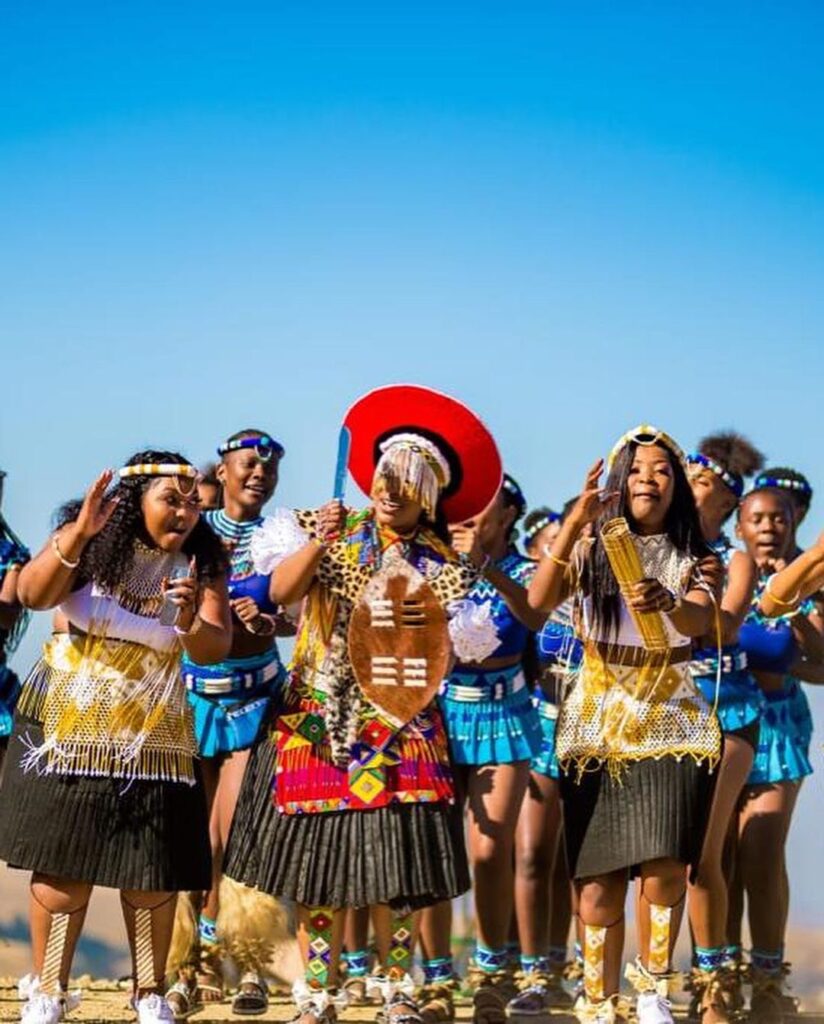
Whether you're a bride planning a Zulu wedding or a guest eager to honour this rich heritage, wearing a Zulu traditional wedding dress is a beautiful way to celebrate.
However, there are key considerations to keep in mind to ensure you not only look stunning but also respect the cultural traditions. Here are five essential things to consider.
Before donning a Zulu traditional wedding dress, it's important to appreciate its cultural depth. These dresses are not just about aesthetics; they carry a wealth of tradition and symbolism.
For instance, the isicholo (the bride's hat) represents respect and transition to womanhood, while the beadwork often tells a story or conveys specific messages.
Wearing this attire requires respect and understanding of its cultural importance.
Zulu bridal attire comprises various elements - the isicholo, the beaded apron (isiqhwayi), the vibrant skirt (isidwaba), and the beaded neckpiece (umqhele). Each piece plays a vital role in the ensemble. When selecting your outfit, consider how these elements come together to create a harmonious and culturally respectful look. It’s also essential to ensure that these elements are sourced responsibly and made authentically.
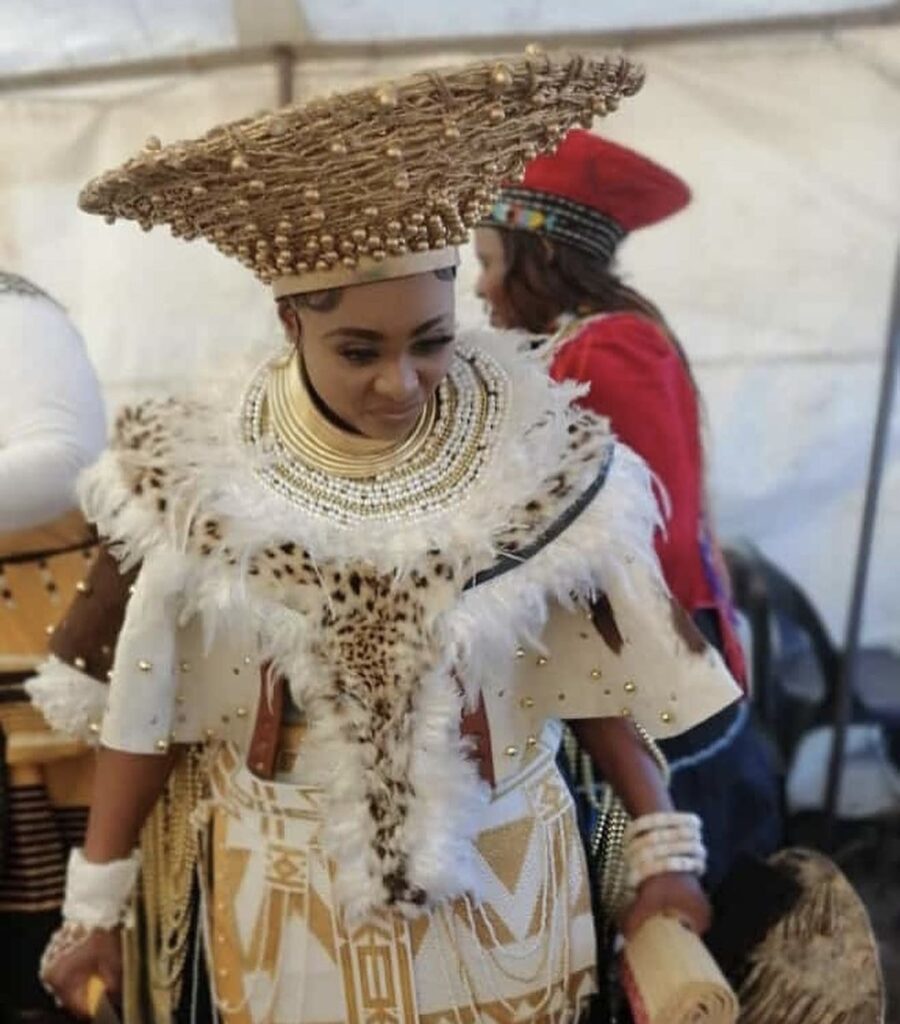
While it's important to honour tradition, it's equally important to infuse your personal style into your attire. Modern adaptations of Zulu wedding dresses often incorporate contemporary elements while maintaining traditional designs. Work with a designer who understands both the cultural background and your personal style to create a dress that reflects who you are and respects the Zulu heritage.
Traditional Zulu wedding attire, with its intricate beadwork and detailed designs, can be quite elaborate. Consider the venue and the activities planned for the day. Ensure that your dress allows for movement, especially if you plan to partake in traditional dances. Comfort is key to enjoying your special day to the fullest.
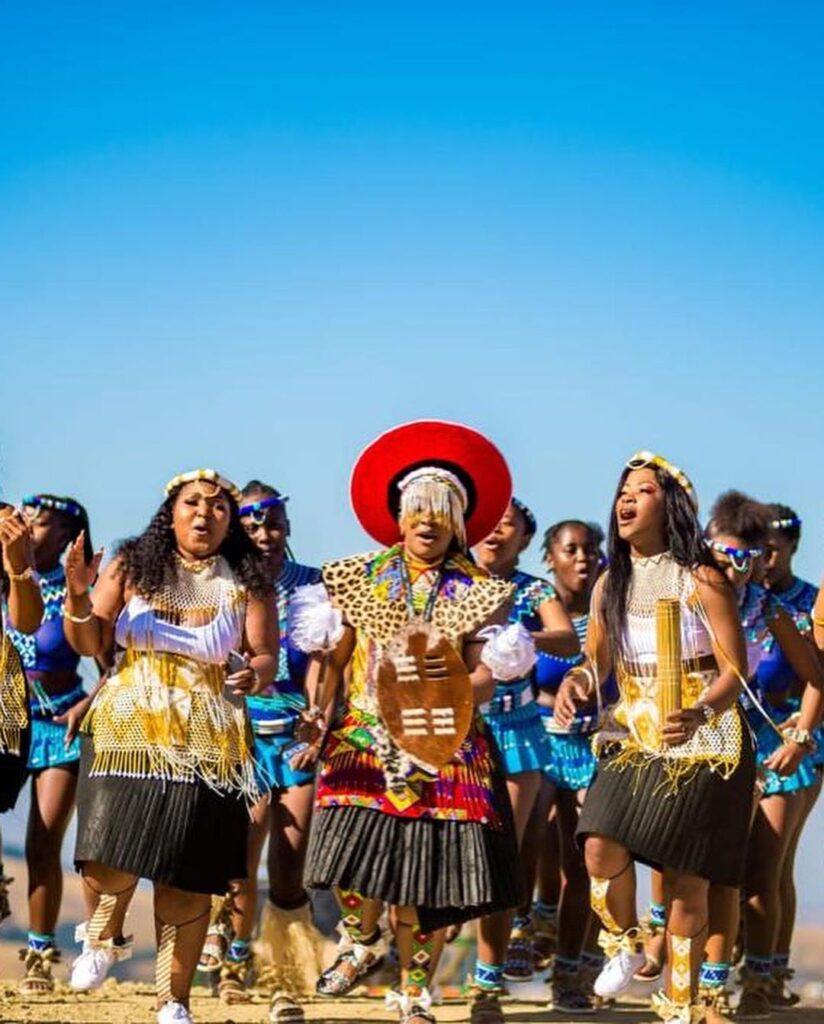
Accessories are a significant part of Zulu wedding attire. Beadwork, in particular, is not just decorative but also symbolic. When choosing accessories like necklaces, bracelets, and headpieces, seek advice on their meanings. Ensure your choices are in harmony with the attire and the occasion’s significance.
In general, remember that your attire is a reflection of history, culture, and personal identity. Go forth and enjoy your Zulu traditional wedding ceremony.
